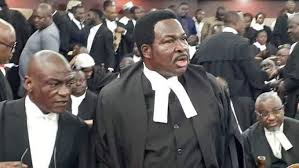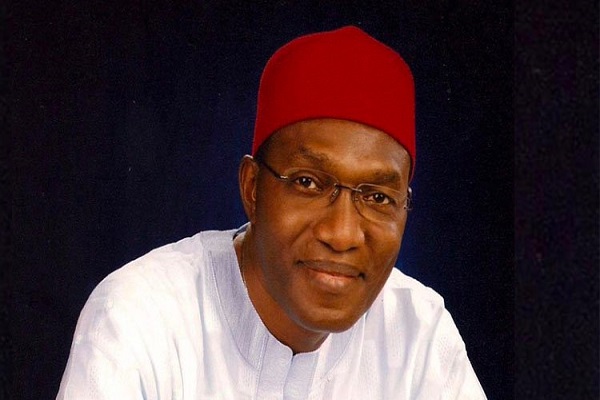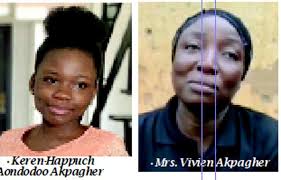By Chief Mike Ozekhome
Like Nostradamus, the man who saw tomorrow in my above writeup I had thoroughly analysed the judgement in the Umahi case before the Federal High Court, Abuja, the very day it was delivered. I had concluded that the Federal High Court was wrong to have ordered the removal of the Governor and Deputy Governor of Ebonyi state from office over their defection from the PDP to the APC. I had predicted then that the judgement will not stand the acid test or furnace of fire of appellate court decisions and that it will definitely be set aside.
Today, the Court of Appeal, Enugu judicial division, vindicated me fully,like Nostradamus ,the man who saw tomorrow.The Court of Appeal, Enugu judicial division,today unanimously dismissed the Appellants’appeal and held that the defection of Governor David Umahi and his Deputy, Kelechi Igwe, “may be immoral or even improper…it must be acknowledged that membership of political parties is an exercise of the freedom of association guaranteed by section 40 of the Constitution..”

The intermediate court,while commending the learned trial Judge,Njoku, J,also held that to have acceded to the argument of the Appellants’ counsel for the trial court to fill an assumed lacuna in the Constitution by extrapolating consequences for elected legislators provided for in sections 68(1)(g) and 109(1)(g) , so as to make elected Governor and his Deputy to vacate their offices, would “degenerate to judicial rascality”. The court emphasized that it is not the duty of courts to make laws or speculate as to what the intention of the legislature will be outside the express words used in the statute.
As regards the Constitution, “the duty is even higher and it is beyond the courts to insert or manufacture words into the express provisions of the “Constitution”, the court warned.
The intermediate court carefully distinguished the old ( now extinct) cases of AMAECHI VS INEC (2008) LPELR-446(SC); FALEKE VS INEC (2016) 18 NWLR ( 1543), and found them gravely irrelevant in the new dispensation of our constitutional regime, having regards to the provisions of section 141 of the Electoral Act,2010, as amended, and section 285(13) of the 1999 Constitution, as altered. Aside these provisions ,the aforementioned cases have since been consigned to the vehicle of judicial historical oblivion to remain there as relics of the past and artefacts of a national museum. See the new regime of the relevant and appropriate cases by the apex and intermediate courts that now insist that votes wholly belong to candidates ,and not to political parties, which merely serve as their vehicles and agents to canvass for and gather votes for the candidates :
CPC & ANOR VS OMBUGADU & ANOR (2013) LPELR-21007(SC); OZOMGBACHI VS AMADI & ORS ( 2018) LPELR-45152( SC); NGIGE VS AKUNYULI (2012) 15 NWLR( PT 1323) 343; NWANKWO & ANOR VS INEC & ORS (2019).LPELR-48862(CA); HARUNA VS APC & ORS(2019) LPELR-47777( CA).
The Court of Appeal also found that once a person has been elected Governor and he takes the oath of office and allegiance, he can only be removed in accordance with the provisions of sections 180, 188 and 189 of the 1999 Constitution. See MARWA VS NYAKO (2012) LPELR-7837 (SC).
The Court of Appeal was emphatic that defection from the political platform on which a Governor was elected, to another political party, is not one of the factors that can make him lose his seat and cease to be a Governor under the Nigerian Constitution.
The court further held that the case of AG FEDERATION VS ABUBAKAR (2007) 10 NWLR ( PT 1041) 1, was the relevant and apposite authority of the Supreme Court which ought to guide all lower courts in matters concerning defection, using the doctrine of stare decisis.
One major significant pronouncement in this case is that even in the case legislators’s defection, as held in ABEGUNDE VS ONDO STATE HOUSE OF ASSEMBLY & ORS (2015) LPELR -24588 (SC), the consequential order to make them suffer the consequence of loss of their seat is “for bye election to be conducted and not for the vacated seat to be allocated to either the political party or the runners up at the election “.
As we await the final court of the land’s determination of an appeal that will certainly arise from this epochal pronouncement, let me again make it clear for future reference point : the Constitution of Nigeria is clear. No court can read into it what is not contained therein. It is trite, the legal maxim, ” EXPRESSIO UNIUS EST EXCLUSIO ALTERIUS” ( the express mention of one thing is the exclusion of others. See EHUWA V ONDO STATE INDEPENDENT ELECTORAL COMMISSION (2006) LPELR-1056(SC); UDOU & ORS VS ORTHOPEDIC HOSPITAL MANAGEMENT BOARD & ANOR ( 1993) LPELR-3308( SC); SHINKAFI & ANOR VS YARI &ORS (2016) LPELR-26050 (SC).
Some may decide,in their analysis, to pontificate and to talk politics,sentiments, emotions,ethics and morality. In my humble opinion, pulpits,mosques, or even shrines are more appropriate places for such ineffectual liberal disquisitions and moral platitudes. I speak the law, without any partisan colouration. I speak the lex lata ( the law as it is); not the delege ferenda ( the law as you would want it to be). We were so taught in our classes in Jurisprudence.




